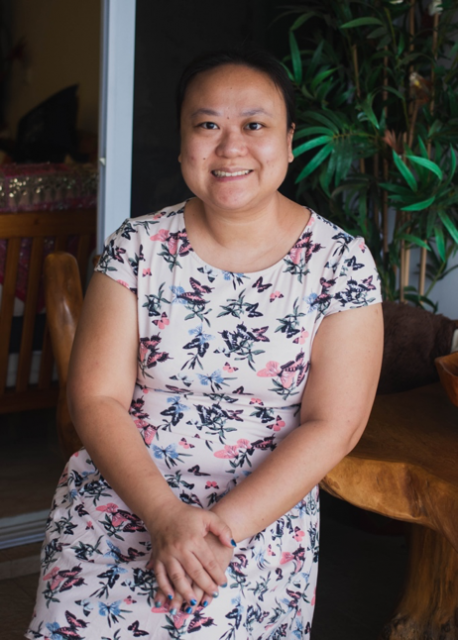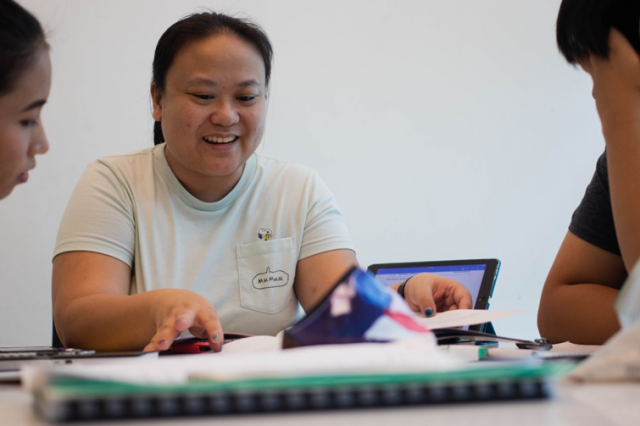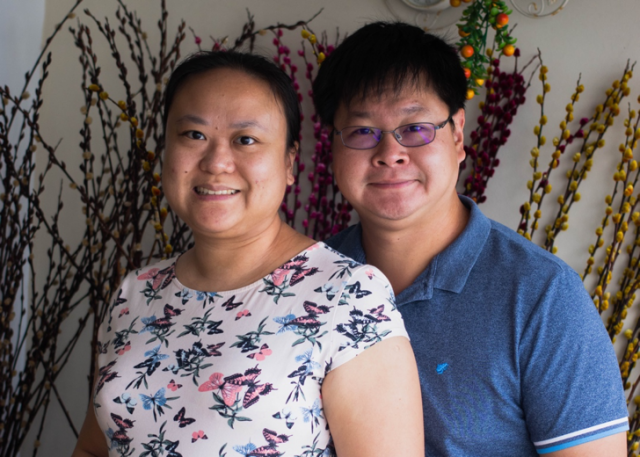Ms Melody Ching, 36, a full-time tutor, has spent a large part of her life grappling with Borderline Personality Disorder (BPD) and Dissociative Identity Disorder (DID), both of which created enduring patterns of maladaptive behavior for the past 22 years.

Imagine waking up one day inhabiting disparate worlds of thoughts and emotions as if another person has taken over your body. Or live your life only seeing everything either good or bad — nothing in between.
Though it may sound bizarre, it’s the reality for many. According to Singapore’s Institute of Mental Health (IMH) in 2010, about one in eight people are suffering from a mental disorder.
While Ms Ching managed to control her condition after seeking help, one of her struggles was filling in job applications. She said: “It’s almost certain that companies will exclude a person from their interview list if one were to declare their mental health status. Lying would give me no peace if I were given the job, so the best option was to become my own boss.”

Today, Ms Ching has a steady stream of students she tutors and her schedule fills up every year. In a National Council of Social Service survey in 2016 of 477 people recovering from mental health issues, 7 in 10 said they feel unaccepted by society or unable to contribute meaningfully to it due to the attitudes and actions of others.
There’s still a need for more discussion and understanding to eradicate the stigma of mental illness, according to the respondents.
Ms Ching vividly recalls her traumatic childhood during which she was subjected to emotional and physical abuse from her mother.
At a young age, she was blamed for being the sole reason for her father’s abandonment as he had wanted a son. Her mother often took out her anger on her in the form of beatings and verbal outbursts. These adverse childhood experiences were the main cause of her mental disorders.
Living with BPD means that Ms Ching has a hard time regulating her emotions. For instance, she shares that it’s difficult to soothe herself when she feels anxious or tearful.
The National Institute of Mental Health describes it as a disorder marked by an ongoing pattern of varying moods, self-image, and behavior. DID is a dissociative disorder where she feels disconnected from the world. “There’s a spectrum of mild to severe. Mine’s on the extreme end where I feel like there’s another person living in me and taking control,” Ms Ching shares.
“The body keeps score” when talking about the disturbance that still exists within her physiology, despite growing out of her adverse childhood. “Due to the high levels of stress I experienced at a young age, I feel anxiety even now. Conflicts can get very unnerving and hard to overcome. Ruminations in my mind can swim for hours and days,” she says.
For three years, Ms Ching had to undergo Electroconvulsive Therapy (ECT), a procedure in which small electric currents are passed through the brain, triggering a brief seizure. This treatment is meant for cases where medications cannot control the symptoms, or if the patient is suicidal and in severe mental pain. “I felt I had a brand new healthy brain each time I had treatment. It was a stabilizing factor in my recovery.”
In psychotherapy, Ms Ching learns ways to deal with stress, anxiety, faulty thinking and negative thoughts, all of which has helped her handle her old ways of coping. She mentioned that her psychotherapist even commented that as a result of therapy, she might even be more mentally resilient than someone who hasn’t had a diagnosis.
Ms Ching has come a long way and is now helping others. “I find that when I’m open about my disorder, I’m able to reach those who’re suffering silently. They know of me, speak to me, hear ways I’ve handled my disorder and understand how I emerged out of it,” she says.

Mr Clarence Chan, 36, is the caretaker of his wife, Ms Ching. Describing caring for her as ‘looking after a fragile flower’, he says: “Mel inspires me through her perseverance in building a fruitful life, helping others in need, developing a career and building a family despite the difficulties that her condition brings.”
Dr Adrian Loh, 40, a psychiatrist in Singapore Armed Forces (SAF), is one of Ms Ching’s friends. Dr Loh says: “I think it’s inspiring how she continues to fight on and takes a positive outlook on things. She uses what she’s gone through to share with people in the community and those around her. She’s really becoming an advocate for mental health.”
“Mental illness is treatable whether or not it’s mild problems they’re facing or much more severe. There’re effective treatments and one should seek help, be it the sufferer or the caregiver.”
Regarding the stigma attached to mental illness, Ms Ching says: “Society thinks people with mental illness are found at IMH. Truth is, there’s a spectrum of disorders that affect us all differently.”
No man is an island. Recovering from mental illness can be a lifelong journey that requires much support. “Cries for help work out better than silent suffering,” she says. “It’s better to live your years with quality than live it in ill-health.”
